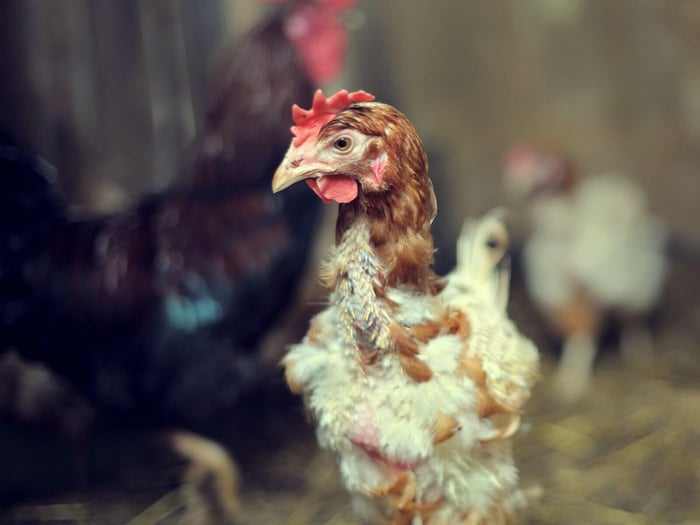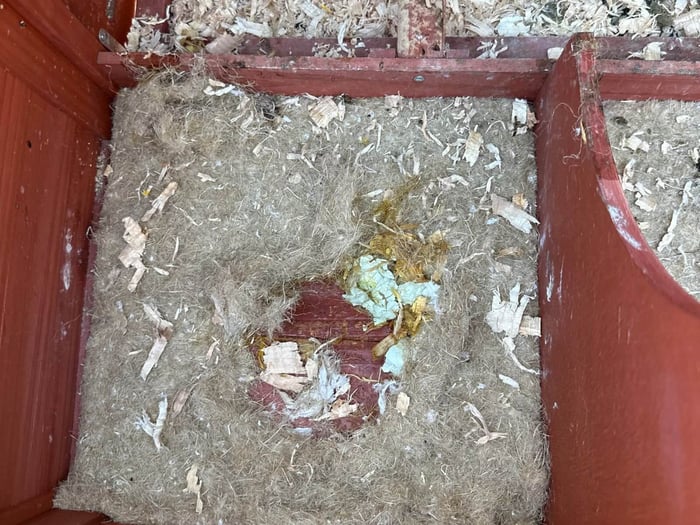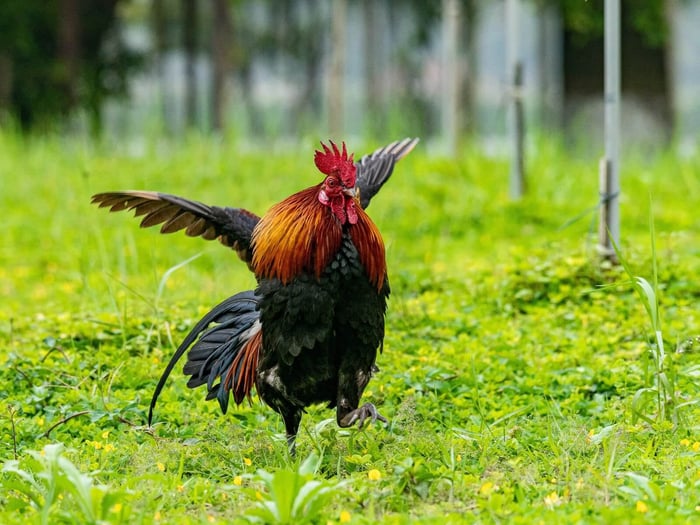How Often Do Chickens Lay Eggs? A Beginner’s Guide to Egg Laying Frequency
One of the most common questions new chicken keepers ask is, how often do chickens lay eggs? Whether you’re starting your first backyard flock or adding a few new hens to an existing coop, understanding egg-laying frequency will help you set realistic expectations. While fresh eggs are one of the biggest perks of raising chickens, hens don’t produce an egg every single day without pause.
Egg production depends on many factors: breed, age, season, diet, and even stress levels. By learning what affects your flock, you’ll not only collect eggs more consistently but also keep your hens healthy and happy along the way.
This guide will walk you through how often chickens lay eggs, what influences their cycles, and what you can do to encourage steady laying.
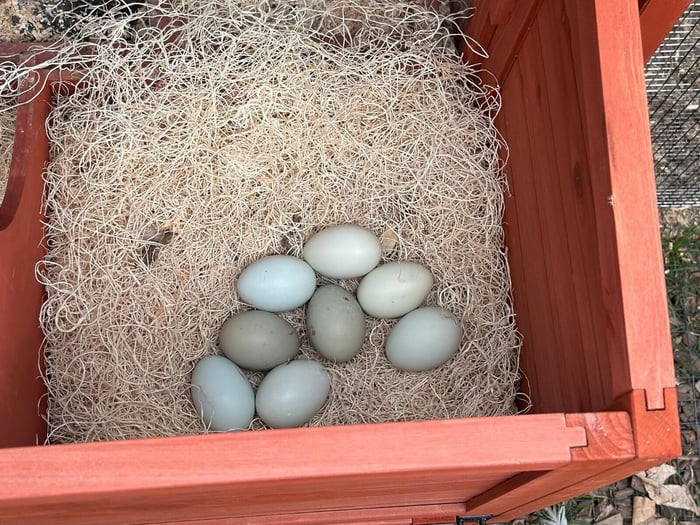
How Often Do Chickens Lay Eggs on Average?
On average, a healthy laying hen produces about 4–6 eggs per week. Some high-production breeds can average nearly one egg per day, while others may only lay a few eggs each week.
The reason hens don’t lay every day is because it takes roughly 24–26 hours for a hen to form and lay a single egg. Once the egg is laid, her body begins the process again. If that cycle extends slightly beyond 24 hours, she may “skip” a day before the next egg arrives.
So, while a hen might lay five eggs in one week, she could lay at slightly different times each day, with occasional breaks. This is completely normal and nothing to worry about.
Breed Makes a Big Difference
Different breeds have very different laying capabilities. Some have been bred specifically for egg production, while others were developed as dual-purpose or ornamental birds.
Leghorns: Famous for producing large numbers of white eggs, often 280–320 per year.
Rhode Island Reds: Reliable layers that average 250–300 brown eggs annually.
Australorps: Known for setting egg-laying records, often producing 250–280 eggs per year.
Easter Eggers: Colorful layers of green, blue, or pinkish eggs, usually 180–250 per year.
Silkies and ornamental breeds: These smaller, decorative breeds may lay only 100–150 eggs annually.
When you ask how often do chickens lay eggs, the first follow-up question should always be: what breed are you raising?
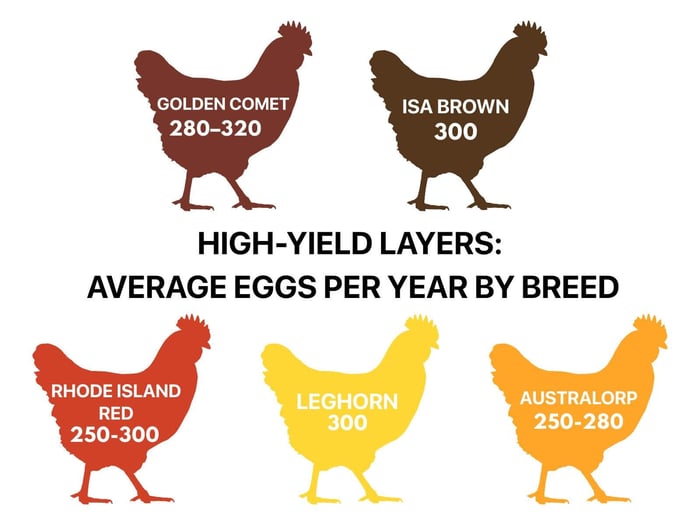
Age and Egg-Laying Frequency
A hen’s age is one of the strongest factors in how often she lays.
Pullets (under 20 weeks): Not yet laying. Most hens start laying between 18–24 weeks depending on breed.
Prime years (1–2 years old): Peak production with the highest egg frequency.
Middle years (3–4 years old): Gradual decline begins, with fewer eggs each year.
Older hens (5+ years old): Some still lay occasionally, but production drops significantly.
It’s also worth noting that the quality of eggs may change with age. Younger hens may lay smaller eggs at first, while older hens sometimes lay larger but less frequent eggs.
Seasonal Changes: Light and Weather
Hens are very sensitive to daylight. To maintain steady egg production, chickens need about 14–16 hours of light per day.
Spring and Summer: Longer days encourage hens to lay frequently, often at their peak.
Fall and Winter: Shorter days result in fewer eggs as hens naturally slow down or pause their cycles.
Cold, wet, or stormy weather can also impact laying. Hens may conserve energy to stay warm rather than focusing on egg production. This is why many chicken keepers notice a sharp decline in eggs once fall arrives.
Some flock owners choose to add supplemental coop lighting in winter to maintain steady laying, while others allow hens to rest naturally during shorter days.
The Role of Diet
Nutrition plays a crucial role in answering the question: how often do chickens lay eggs? A well-balanced layer feed provides the protein, calcium, and vitamins needed for consistent production.
Protein: Essential for egg development.
Calcium: Vital for strong eggshells. Crushed oyster shells or grit are often provided as supplements.
Fresh greens and forage: Add variety and nutrients that improve overall health.
If hens are missing key nutrients, they may slow down or stop laying altogether. Even if you’re raising the best breeds, a poor diet can dramatically reduce egg counts.
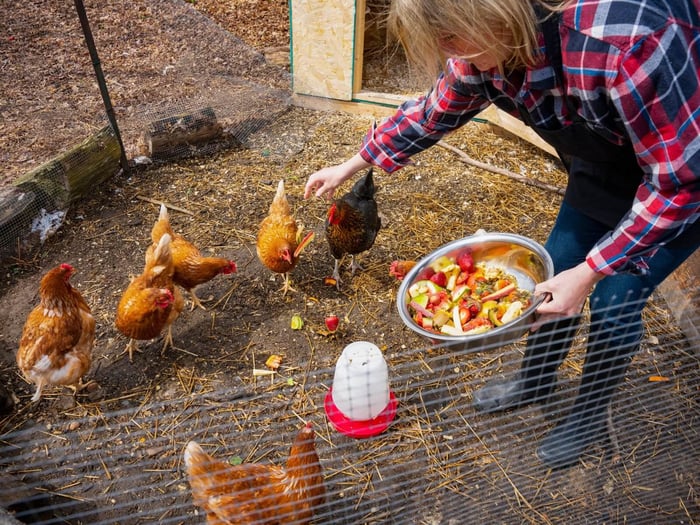
Stress and Environment
Chickens are sensitive to stress, and even small disruptions can affect their laying cycle. Stress can come from:
Predator threats (even if no attack occurs).
Overcrowding in the coop.
Poor ventilation or dirty bedding.
Too much handling or frequent changes in the flock.
Providing a clean, secure, and spacious coop environment helps keep hens calm and productive. If you ever notice a sudden drop in eggs, consider what environmental stressors might be affecting your flock.
Molting and Natural Breaks
Every fall, hens go through molting—the process of shedding old feathers and growing new ones. During this time, egg production often slows or stops completely as energy is redirected toward feather growth.
Molting can last anywhere from 6–12 weeks. While it may feel frustrating to collect fewer eggs, remember it’s a natural and healthy part of a chicken’s yearly cycle.
In addition to molting, hens may take short natural breaks throughout the year, especially after periods of high production.
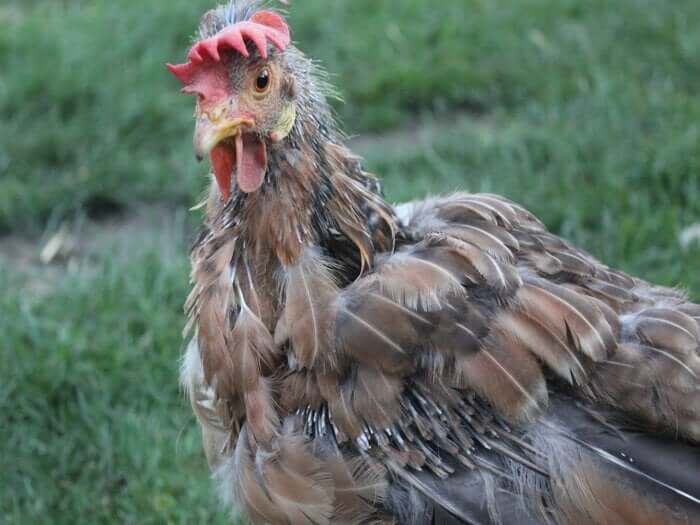
How to Encourage Steady Laying
While you can’t expect eggs every single day, you can support your flock with these strategies:
Provide 14–16 hours of light daily during the laying season.
Feed a high-quality layer feed with adequate calcium.
Keep nesting boxes clean, private, and well-bedded.
Ensure fresh water is always available.
Minimize stress with a secure, predator-proof coop.
Accept natural pauses like molting as part of flock life.
By setting the right conditions, you’ll get the best possible production from your hens without pushing them beyond what’s healthy.
Conclusion
So, how often do chickens lay eggs? The answer depends on breed, age, season, diet, and environment. On average, most hens produce 4–6 eggs per week, with high-production breeds laying close to daily during their prime years. Over time, cycles slow down as hens age or face seasonal changes like molting.
By understanding what affects egg production and supporting your flock with good care, you’ll enjoy a steady supply of farm-fresh eggs and healthier, happier chickens.
Want to learn more? Check out these other blogs on the topic.
Easter Eggers: Colorful Eggs Start Here
Mango Wood Egg Holder
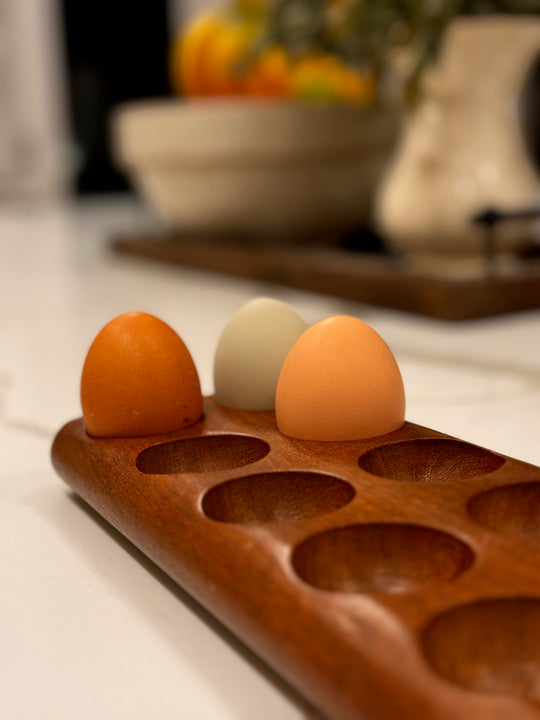
$ 29.99
Meet our new mango wood egg holder. Convenient and stylish it will keep your eggs safe and looking great until you eat 'em up. More details coming soon. … read more


.png)
